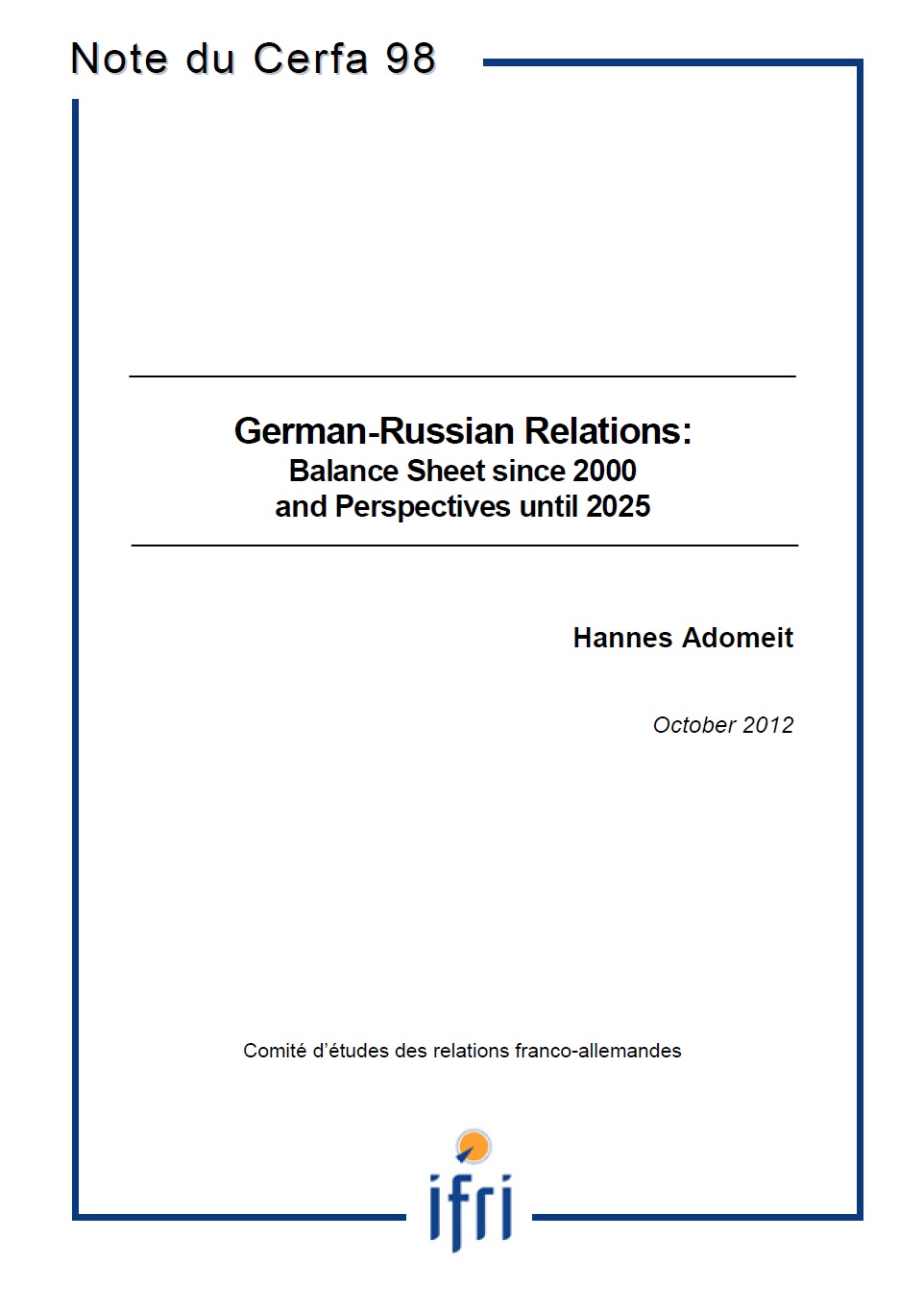German-Russian Relations: Balance Sheet since 2000 and Perspectives until 2025

The relationship between Germany and Russia, according to official portrayals in Berlin, is one of ‘strategic partnership’ supplemented by ‘modernisation partnership’. The closeness and at times demonstrative cordiality of the relations have given rise to suspicion about Germany being an advocate of Russian interests in Europe for the benefit of its economy but at the expense of Europe’s trans-Atlantic links.
In particular, concerns have been expressed that Berlin was neglecting the interests of the smaller Eastern and East-Central European states, including those of the Baltic countries. Germany’s Russia policies have also been criticised on the grounds that Berlin had ignored the more authoritarian direction Russian domestic politics and the more assertive stance the country has adopted in foreign policy under Putin, placing narrow German economic interests first and rating European values second. However, such perceptions are to some extent at least outdated. The ‘special relationship’ is no longer so special. Disappointment and frustration have increasingly affected the relations. With Putin back in office as president and with his foreign policy resuming its assertive Great Power character, disaffection, alienation and competition rather than amicable partnership are likely to characterize future relations.
Hannes Adomeit is currently teaching at the European Interdisciplinary Studies Department of Natolin (Warsaw). Until December 2007 he was Senior Research Associate at the Stiftung Wissenschaft und Politik (SWP) in Berlin, in charge of Russian Affairs. He was also Professor for International Politics and Director of the Program on Russia and East-Central Europe at the Fletcher School of Law and Diplomacy in Boston and Fellow at the Harvard Russian Research Center.

Available in:
Regions and themes
ISBN / ISSN
Share
Download the full analysis
This page contains only a summary of our work. If you would like to have access to all the information from our research on the subject, you can download the full version in PDF format.
German-Russian Relations: Balance Sheet since 2000 and Perspectives until 2025
Related centers and programs
Discover our other research centers and programsFind out more
Discover all our analysesThe Franco-German Brigade and the Revival of European Defense
One thing has been clear since Donald Trump's return to the White House: the very existence of the European unification project is threatened. Unless it develops a sovereign defense policy to counter the war in Ukraine and the weakening of American security guarantees, the European Union will continue to see its internal cohesion and external attractiveness wane.
Friedrich Merz and the Zeitenwende 2.0. A “New Era” for Transatlantic Relations?
On February 23, 2025, almost 60 million voters were called upon to elect a new Bundestag. These elections will also give rise to a new government in Europe's largest economy.
After the Elections: Germany in Search of Shaken Stability?
With a voter turnout of 82.5%, Germany recorded its highest participation since 1987—an increase of 6.1 percentage points compared to 2021. As in the previous election, the high turnout particularly benefited the Alternative for Germany (AfD), which was able to mobilize many former non-voters. Many voters sought to punish the outgoing government with their ballots, as its approval rating had dropped to just 14% before the coalition broke apart in November 2024. Germany is now very likely heading toward a grand coalition between the CDU/CSU and the SPD, with exploratory talks having begun on February 28.
The German Greens as an Alliance Party: The End of an Illusion?
At the Wiesbaden Congress in November 2024, Robert Habeck, currently Minister for the Economy and Climate, was nominated as the Green Party’s candidate for the Chancellorship in the early parliamentary elections on February 23, 2025. The party, founded 45 years ago, is now firmly established in the German political landscape. Wishing to turn the page on an unloved ‘‘traffic light’’ coalition, the party is banking on a personal campaign and an optimistic discourse based on the energy transition and social justice.








